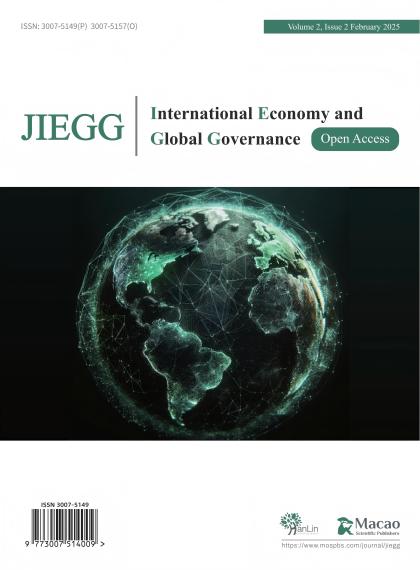-
Acharya, A. (2016). The End of American World Order. Polity Press.
-
Acharya, A. (2017). After liberal hegemony: The advent of a multiplex world order. Ethics & International Affairs, 31(3), 271-285.
-
Alene, N. M., Ali, M. S., & Tadesse, K. Y. (2023). Africa’s quest for reform of the united nations security council: a just cause curbed by unrealistic proposals. African Journal on Conflict Resolution, 23(1).
-
Chowdhry, G., & Nair, S. (Eds.). (2014). Power, postcolonialism and international relations: Reading race, gender and class. Routledge.
-
Cox, R. W. (2012). Production, power, and world order: Social forces in the making of history. Columbia University Press.
-
Duggan, N., Hooijmaaijers, B., Rewizorski, M., & Arapova, E. (2021). Introduction: ‘The BRICS, Global Governance, and Challenges for South–South Cooperation in a Post-Western World’. International Political Science Review, 43(4), 469-480.
-
Freddy, H. J., & Thomas, C. J. (2023). Status Competition: The BRICS’ Quest for Influence in Global Governance. China Report, 59(4), 388-401.
-
Gaskarth, J. (2015). Rising powers, global governance and global responsibility. Global Affairs, 1(2), 187-199.
-
Ikenberry, G. J. (2018). The end of liberal international order? International Affairs, 94(1), 7-23.
-
Jupille, J., Mattli, W., & Snidal, D. (2013). Institutional choice and global commerce. Cambridge University Press.
-
Keohane, R. O., & Morse, J. C. (2016). Counter-multilateralism. In The politics of global regulation (pp. 262-300). Princeton University Press.
-
Lees, N. (2023). The endurance of the G77 in international relations: South–South ideology and voting at the United Nations 1970–2015. Japanese Journal of Political Science, 24(3), 310–330.
-
Mearsheimer, J. J. (2019). Bound to fail: The rise and fall of the liberal international order. International Security, 43(4), 7-50.
-
Men, H., & Yu, Y. (2024). China’s Relations with Developing-Countries in the New Era: Within the Framework of the Global South. International Review, (1), 67-94.
-
Morse, J. C., & Keohane, R. O. (2014). Contested multilateralism. The Review of International Organizations, 9(4), 385-412.
-
Organski, A. F. K., & Kugler, J. (1980). The war ledger. University of Chicago Press.
-
Petrone, F. (2021). BRICS and Global Governance: Will the Grouping be able to Reform the United Nations Security Council? International Studies, 58(3), 363-379.
-
Stuenkel, O. (2020). The Post-Western World: How Emerging Powers Are Remaking Global Order. Polity Press.
-
Towns, A. E., & Rumelili, B. (2017). Taking the pressure: Unpacking the relation between norms, social hierarchies, and social pressures on states. European Journal of International Relations, 23(4), 756-779.
-
Vestergaard, J., & Wade, R. H. (2015). Still in the woods: Gridlock in the IMF and the World Bank puts multilateralism at risk. Global Policy, 6(1), 1-12.

